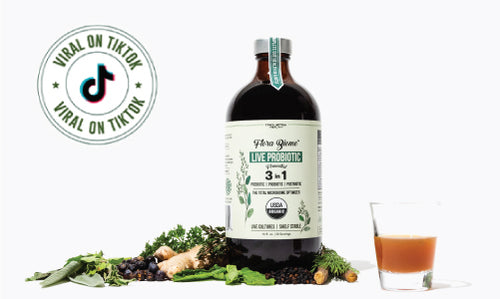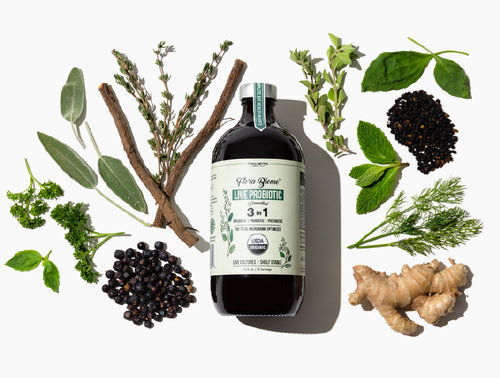In today's world, it feels as if we continuously have to adapt and overcome. Of course, stress is an unavoidable part of life, and not all stress is necessarily bad, but chronic stress can cause some severe health issues if it is left alone to wreak havoc on your mind and body.
This stress has been proven to impact your:
- Respiratory and Cardiovascular System
- Muscular Function and Growth
- Digestive System
- Sexual Drive and Reproductive System
- Immune System
It is safe to say that stress can take a toll on many facets of your life, and finding a healthy and natural way of dealing with it should be a top priority. Adaptogens have been studied increasingly in the last ten years, and the results show that it is a worthwhile field of study. Adaptogens are natural and safe herbs that can help the body resist environmental stress, remain in a state of rest, and recover faster.[1]
What Are Adaptogens?

The term adaptogen was coined during World War II when a group of Russian scientists looked for ways to make stronger, healthier, and more alert soldiers. Does this remind you of the plot of any Marvel superhero movie? (cough, cough Captain America)
This group of scientists led by N. Lazarev published their findings and created three criteria to identify an adaptogen:
- Must be non-specific and must assist the human body in resisting a wide range of adverse conditions, such as physical, chemical, or biological stress. These may include environmental pollution, climate change, radiation, infectious diseases, and interpersonal disharmony.
- Must maintain homeostasis in humans. That is, these substances can offset or resist physical disorders caused by external stress.
- Must not harm the normal functions of the human body.
Throughout the next 80 years, adaptogens have continued to be studied, and this original definition has changed a bit. Still, its core has stayed true: an adaptogen helps the body resist external stress, remain in a state of homeostasis, and promote anabolic recovery.

Scientists believe that one of the properties of adaptogens that give it the ability to adapt to stress is that the plants have to adapt to their harsh environments to survive. For Example, Siberia Rhodiola is grown in the forests of the Siberian Tundra. The forest is at an average of -18 degrees and has permafrost, so anything that grows here must adapt to the frigid climates.
Shockingly, plants, shrubs, and herbs can adapt and grow in the Siberian soil. They adapt to the stress of the weather.
Since Siberia Rhodiola has spent centuries adapting and surviving the frigid temps of Siberian, it gives even a more powerful boost in mood, enhances cognitive functions, and assists in relieving chronic fatigue.
What Do Adaptogens Do For The Body?

Stress responses occur from an intimate connection between the brain and the adrenal glands. The brain perceives the stressful activity and transmits the signal to the adrenal glands.
A healthy stress response is triggered only when natural stresses are present (such as life-threatening situations) and then stops when the trigger is gone. In people with dysfunctional stress responses, the system is activated too frequently and then does not turn off – leaving us in a heightened state of stress and despair.
This extreme stress can cause a person to deal with:
- Insomnia
- Digestive Issues
- Anxiety
- Depression
Adaptogens like Ashwagandha and Rhodiola act as a buffer to this system. Firstly, it raises the threshold for a stress response to be triggered (so you're not stressed easily), and it helps the stress response turn off when it is no longer needed. The primary function of adaptogens is to increase the body's natural ability to adapt and handle stress; physical, biological, and emotional stress. They also have opposing qualities, such as relaxing or stimulating by helping you handle physical and emotional stress in highly demanding situations or helping you relax and unwind more quickly when it's time to rest. In essence, adaptogens make the body more resilient, adaptable, and calm.
[1] https://link.springer.com/article/10.1186/s13020-018-0214-9









